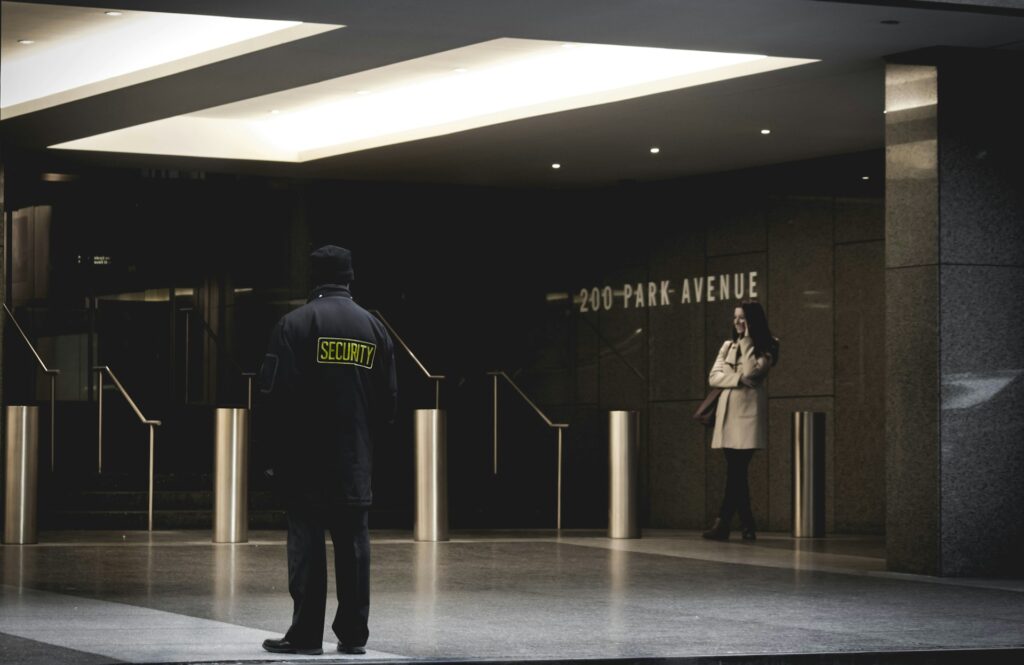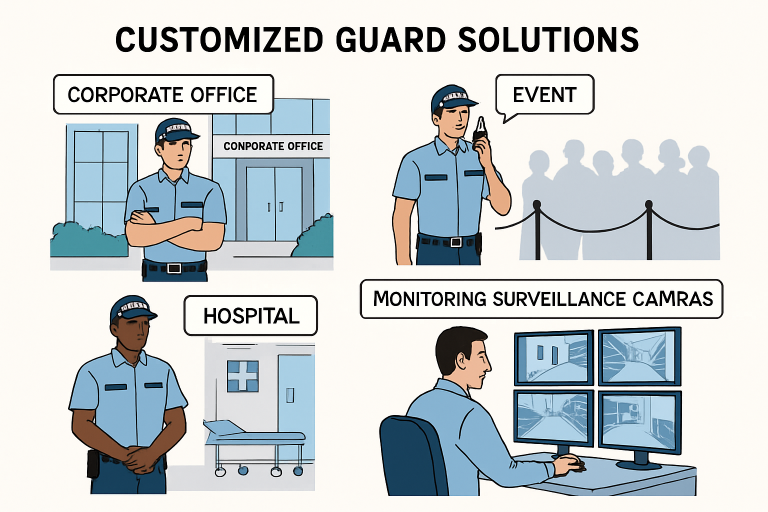
Why Security Needs Vary
Security is a critical concern for organizations and communities of all types, but the challenges each faces are highly specific. While some may contend with property theft or vandalism, others must plan for large-scale public events or sensitive environments like schools or hospitals. The key to truly effective protection is customizing security measures to address targeted risks. This adaptive approach is particularly relevant for businesses or venues seeking effective event security guard services Detroit. Assigning a standard, generic guard team rarely addresses the unique threats that distinct locations or situations present.
Custom security solutions start with deeply understanding the client’s environment and concerns. For instance, a tech company headquarters may prioritize data integrity and intellectual property protection, whereas a retail environment is more concerned with shoplifting and in-store conflicts. Event venues, meanwhile, must consider crowd management and emergency evacuation procedures. Expertly matched security protocols directly address these needs, resulting in greater safety outcomes and peace of mind.
Key Benefits of Custom Guard Services
Custom-trained security guards offer several advantages, including proactive threat mitigation, improved operational compatibility, and budget optimization. These professionals identify specific risks specific to a property or event, focusing their efforts where they are most needed, leading to a reduction in incidents. They also optimize resources by concentrating on high-vulnerabilities, such as peak-hour entry points or high-traffic event segments. Dedicated event security guard services ensure safety and contribute to smoother operations and enhanced guest satisfaction. Establishing clear roles, expectations, and escalation procedures strengthens accountability and compliance for all stakeholders.
Types of Settings Served by Security Professionals
The contexts in which professional security guards operate are broad and varied. Corporate offices, manufacturing facilities, residential communities, hospitals, educational institutions, and large public events require uniquely tailored security programs. These range from visible deterrents—like roving patrols or access control checkpoints—to more discreet protective measures such as monitoring surveillance feeds or behavioral observation. Services adjust dynamically in response to changing risk factors, such as political demonstrations, product launches, or temporary increases in crime.
A skilled security provider will build teams that are familiar with the specific setting and adaptable to evolving circumstances. For example, a hospital may require support in patient de-escalation and privacy enforcement, while a festival may prioritize perimeter control and lost child protocols. In each case, customization ensures the deployed team’s tools and training match the real-world scenario, strengthening the perception and reality of security.

Rigorous Industry Standards and Training
Behind effective security solutions is a commitment to industry-leading training and ongoing education. Guards undergo extensive instruction in conflict management, de-escalation strategies, emergency medical response, and state-specific legal regulations. Ongoing professional development is vital for keeping pace with technological advancements and threat landscapes.
For reputable providers, background checks, license verification, and scenario-based training are non-negotiable. Clients should expect security personnel who have not only passed these benchmarks but who regularly demonstrate their capabilities through drills and updated certifications. This rigor is especially important in sensitive or high-profile environments where public safety and organizational reputation are at stake.
Technology and Tools Used by Modern Guards
Today’s security guards increasingly rely on advanced tools to enhance efficiency and accountability. Body cameras, electronic patrol tracking systems, and mobile check-in applications support transparency and effectiveness. The latest communication devices allow guards to instantly report incidents and coordinate actions with law enforcement or management, shortening response times and preventing escalation.
Real-time video surveillance, integrated alarm systems, and data analytics platforms allow for customized personnel deployment and continuous improvement of security protocols. For instance, detailed incident reports and trend analysis help security managers adjust scheduling and coverage to meet developing threats. Leading organizations are also beginning to adopt AI-driven threat detection and remote monitoring solutions, ensuring their security approaches stay ahead of potential adversaries. For a broader perspective on technology’s impact, Forbes Tech Council discusses advancements at large public venues.
Risk Assessment in Security Service Planning
A thorough risk assessment is foundational to any customized security strategy. Professionals begin by scrutinizing the environment for existing and emerging threats—ranging from unauthorized entry to emergency preparedness and insider risks. This process typically includes security audits, stakeholder interviews, and direct observation of facility operations. The findings inform a protection plan with specific routines, escalation routes, and contingency protocols tailored to probable incidents.
Risk assessment isn’t a one-and-done event. It’s a continual cycle—especially in settings prone to change, like busy urban areas or event venues. Ongoing dialogue between security providers and clients ensures that plans stay aligned with evolving needs, regulatory changes, and emerging local or global risks.
How to Measure Security Program Effectiveness
Organizations rely on a blend of quantitative and qualitative metrics to ensure security programs truly serve their intended purpose. Incident logs, response times, customer and client feedback, and audit outcomes form the backbone of ongoing evaluation. Regular performance reviews—including unannounced drills and professional audits—provide objective measurements and drive continuous improvement. Industry resources, such as ASIS International, offer benchmarks and case studies that help organizations gauge their effectiveness against recognized standards.
Open communication between security teams and clients ensures adjustments can be made as needed. This flexibility is what differentiates truly customized solutions from off-the-shelf approaches; as threats, regulations, and expectations change, so too must the security protocols in place.
Future Trends in Security Guard Services
The evolution of security guard services continues to accelerate, driven by emerging technologies and growing client demands. Artificial intelligence, predictive analytics, and remote operations will become increasingly commonplace, enabling guards to recognize threats more quickly and intervene before incidents occur. As urban environments grow more complex and public events expand in scale, organizations will increasingly turn to professional security guard services tailored to their unique needs—not just as a form of protection, but as an extension of customer service and operational excellence.
Keeping pace with these developments ensures your organization remains agile in a landscape of ever-shifting risks. With flexibility, advanced technology, and an unwavering commitment to training, customized security guard solutions will continue to deliver peace of mind—no matter the challenge.





